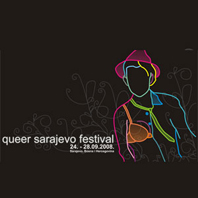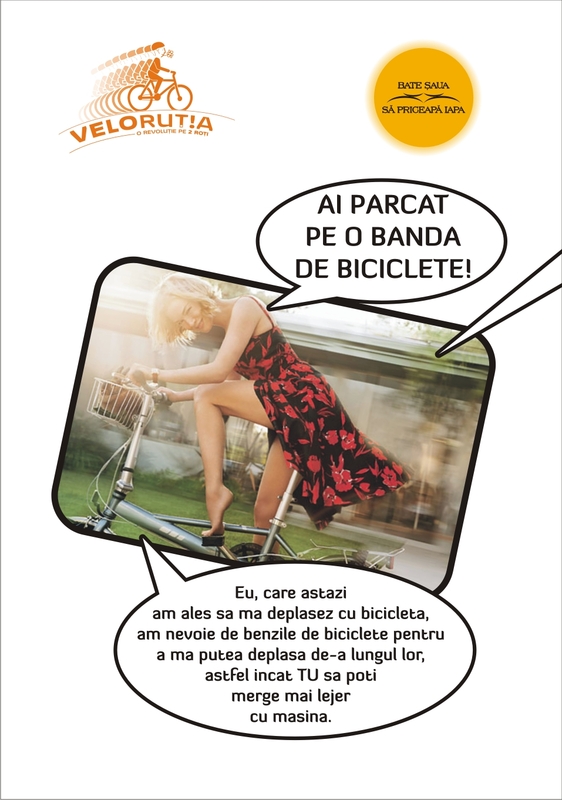“Historic Pride Event in Sarajevo Canceled” @ WOC PhD
It took only one night of violence at the historic Gay Pride Festival in Sarajevo for the events weekend long schedule to be shutdown.

(Organization Q Awareness Graffiti 2007)
250 people attended the opening night event yesterday to celebrate queer sexualities and equality. 70 men stood outside the event throwing rocks and yelling homophobic slurs. A small group of these were Muslim chanting about offense on Ramadan, while 12 others came from the anti-gay group Horde of Evil. The latter yelled “death to gays” and smashed the window of the Sarajevo Academy of Art while throwing rocks at art exhibit windows.
Although the event was heavily policed, and officers were able to push back protesters the violence did not end there. Several people returned at the end of the night to beat up attendees as the left. Some were even dragged from their cars. At least 10 people were seriously injured by night’s end.
5 men face charges. That is less than 10% of the total protesters involved in homophobic verbal assaults and an untold percentage of those involved in the physical violence later.
The message, which began with posters saying “Death to Gays” and escalated through the Muslim Imams and then across religious and secular political parties, including acting members of the government, condemning the event, was clear: constitution or not, the queer community is not safe in Sarajevo. This sentiment backs up an earlier study of queer life in the post-conflict region that said gay people were being actively harassed and beaten and/or feared for their lives at night on the streets in parts of the region.
Svetlana Djurkovic, a member of one of the NGOs who planned the event, announced that it would be canceled. She had initially hoped the event would highlight human rights and encourage people to think of what they have already survived because of intolerance and make the connection to why homophobia is equally unacceptable.
see earlier news: “Death Threats in Sarajevo on Eve of Pride” also on WOC PhD
and a “Report from Queer Sarajevo opening”
 On September 24th, the first Queer Sarajevo Festival was opened.
On September 24th, the first Queer Sarajevo Festival was opened.
The opening started with a magnificent exhibition at the Academy of Arts. The turnout was great, it was so genuine and touching at the same time.
There were more than 300 people at the opening, and their sexual orientation was of no relevance, as well as their religion or their sex and gender. The most important thing was that they were there to support a great event, a fabulous festival, wonderful people. Art, joy, life, freedom…
However, the reality was not very bright. In front of the Academy, just before the very opening, a group of aggressive religious extremists started gathering. There were about 150 of them, holding stones, some of them with knives, even guns.
Seven activists and visitors of the festival , as well as one policeman have been injured. These people have been brutally attacked and have suffered severe injuries.
These groups of extremists were following people to their cars, pulling them out, kicking and hitting them. They also pulled one of the taxi drivers out of his car, told him to back off and started kicking the people in the car. They hit a young man so hard that they broke his nose and continued kicking him him with a gun, after which the man lost consciousness.
Few more people were attacked and suffered head injures. One man suffered internal bleeding.
The police has registered the festival as an event with a high level of risk, but unfortunately have not treated it as such. The police have allowed 100 to 150 football hooligans and religious fundamentalists to push their way through to the very enterance of the Academy. Then, the private security guards had to deal with the situation and the extremists.
The police didn’t even care to disperse the crowd and the gathering which had not been previously announced. This is a great failure of the police.
Again there was not only a failure to grasp who the endangered party was, but the violence was also allowed and supported.
The great responsibilty of the police and the institutions that have not reacted timely and properly, allowing football hooligans and religious fundamentalists to gather will not be undermined. They claimed that thay couldn’t have stopped them due to the freedom of movement.
If this is the case, then why don’t queer people have the right to freedom of movement?
After QueerBeograd festival, where I have experienced the same example of intimidation and violence, where people have been brutally beaten up, here I am in Sarajevo at the first proud Queer festivalu and I am reliving the same story, where it is being said that a person who is beating me up has the right to walk freely and kill me. And I am being pushed into a room and victimised just for being a lesbian, a queer feminist and a proud activist.
Well, there will be no stopping, we will keep on living, rejoicing and fighting.




